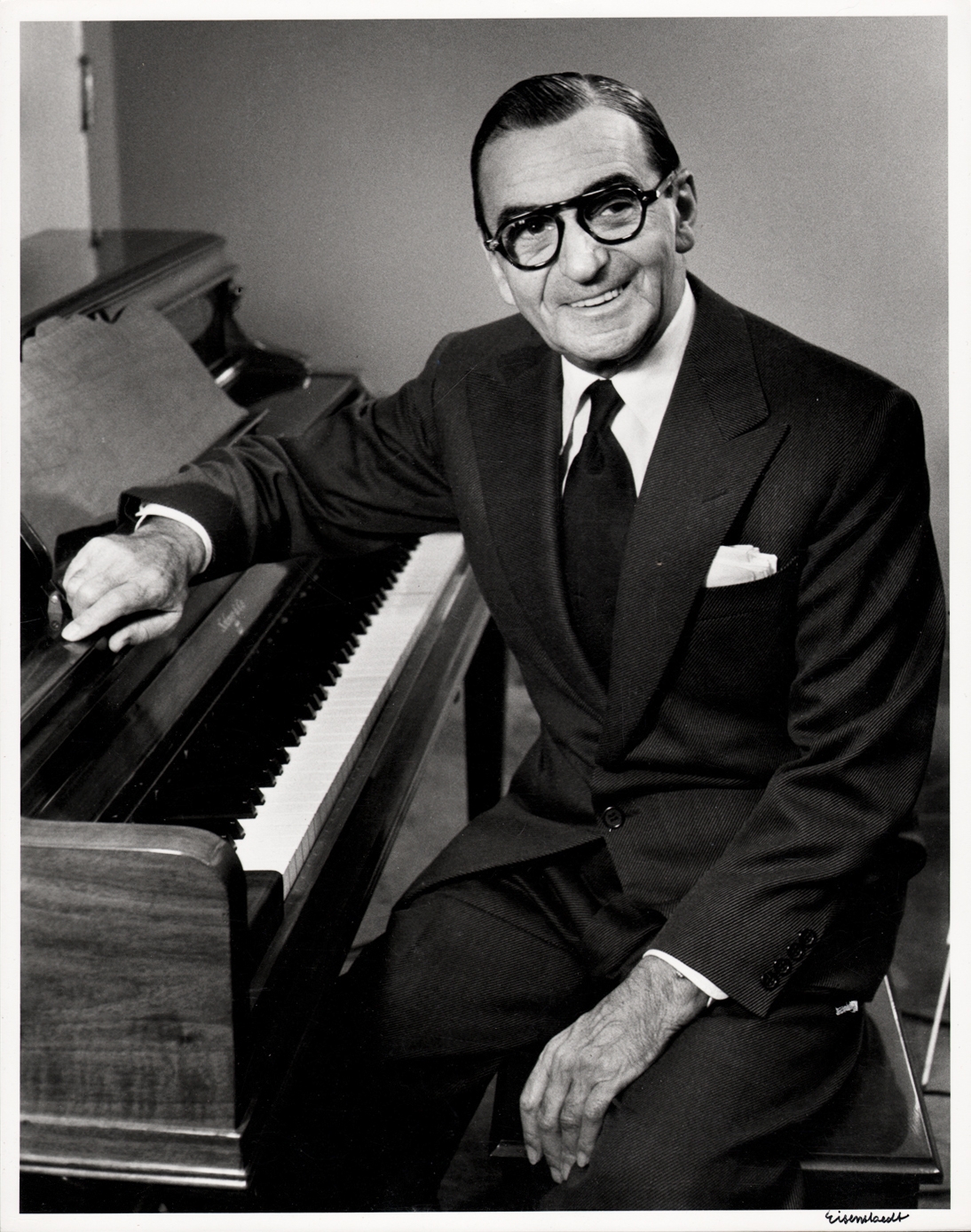Irving Berlin´s life is the stuff of legend: the child of Russian immigrants who rose from the squalor of the Lower East Side to the heady heights of Broadway and Hollywood by writing songs every American could and did sing.
A Berlin song is simplicity itself, a handful of one syllable words sitting effortlessly astride an irresistibly catchy tune. “Alexander´s Ragtime Band” swept the world in 1911 and was followed over the next 40 years by at least 25 Number One hits: “Say It With Music,” “Blue Skies,” “Puttin´ On The Ritz,” “Cheek to Cheek,” “Easter Parade,” the hit-packed scores written for Ethel Merman, ANNIE GET YOUR GUN and CALL ME MADAM, the impeccable film scores tailored to the black tie/evening gown glamour of Fred Astaire and Ginger Rogers (TOP HAT, FOLLOW THE FLEET, CAREFREE)-a song catalogue that truly chronicles the mores and basic feelings of the twentieth century American.
Berlin´s patriotic activities began in WWI with the production of YIP YIP YAPHANK, cast entirely with military men. The spectacular success of Berlin´s fundraising and morale-boosting efforts demanded a reprise during WWII when he wrote and toured with THIS IS THE ARMY. Berlin´s appearance onstage in his WWI doughboy outfit singing “Oh How I Hate To Get Up in the Morning” is one of the great enduring images of the Second World War.
“God Bless America”, introduced in an historic 1938 radio broadcast by Kate Smith, is our unofficial national anthem; “White Christmas,” commercially the most popular song ever written in America, defines, like no other song, our basic longing for home and family.
Berlin´s themes are universal and immediately recognizable, those experiences all humans have in common: joy, sorrow, hope, despair, zany humor, bewilderment, love and loss, all in simple song. From the rough-and-ready world of ragtime to the ultimate elegance and sophistication of Hollywood, Irving Berlin was, is, and always will be the quintessential American songwriter.
If you would like to engage Fred Miller for one of his Lectures-in-Song, please contact him directly at any time. For a full listing of all Lectures, click here.
Fred Miller’s Lectures-In-Song comprise a series of solo programs, each an historical, anecdotal and musical profile of some great personality or important aspect of American Popular Song. These Lectures are delivered by singer/pianist/narrator Miller at the piano, and each reflects his lifetime passion and appreciation for great music. He studied classical piano in his hometown of Albuquerque from ages 7-15 but early on gave up any notion of music as a profession. At that time, Fred assumed a musical career was either one devoted to the rigid discipline of classical music or being a freewheeling rock star, and he accurately decided he had no aptitude for either. However, at age 22, upon hearing Ella Fitzgerald sing Cole Porter, he found his calling and life’s mission.
Through the Seventies and Eighties, Miller studied and absorbed in minute detail the life and times and songs of nearly all the great American composers and lyricists who thrived during Broadway & Hollywood’s Golden Age between the two World Wars. In 1987, he founded Silver Dollar Productions in order to produce operettas, dramas, musicals and small cabarets. Silver Dollar Productions required ensemble casts, props, costumes and, most significantly, the challenges of publicity and selling tickets, and for a dozen busy years, the company presented an unbroken string of varied and highly lauded performances.
In 1999, Miller was simultaneously underwritten by both his local Hunterdon County Library and the Art Alliance of Philadelphia to present a series of six solo Lectures-In-Song, each devoted to one of the premiere Broadway/Hollywood songwriters: George Gershwin, Cole Porter, Irving Berlin, Richard Rodgers, Jerome Kern, and Harold Arlen.
In presenting history, biography and psychology while sitting at a piano singing the superlative songs of his heroes, Miller has found a single performing medium that utilizes most of his intellectual and musical passions.The list of Lectures-In-Song that began with six in 1999 is now more than seventy(and growing!), a joyful tribute to the boundlessly rich field of American Popular Song.

